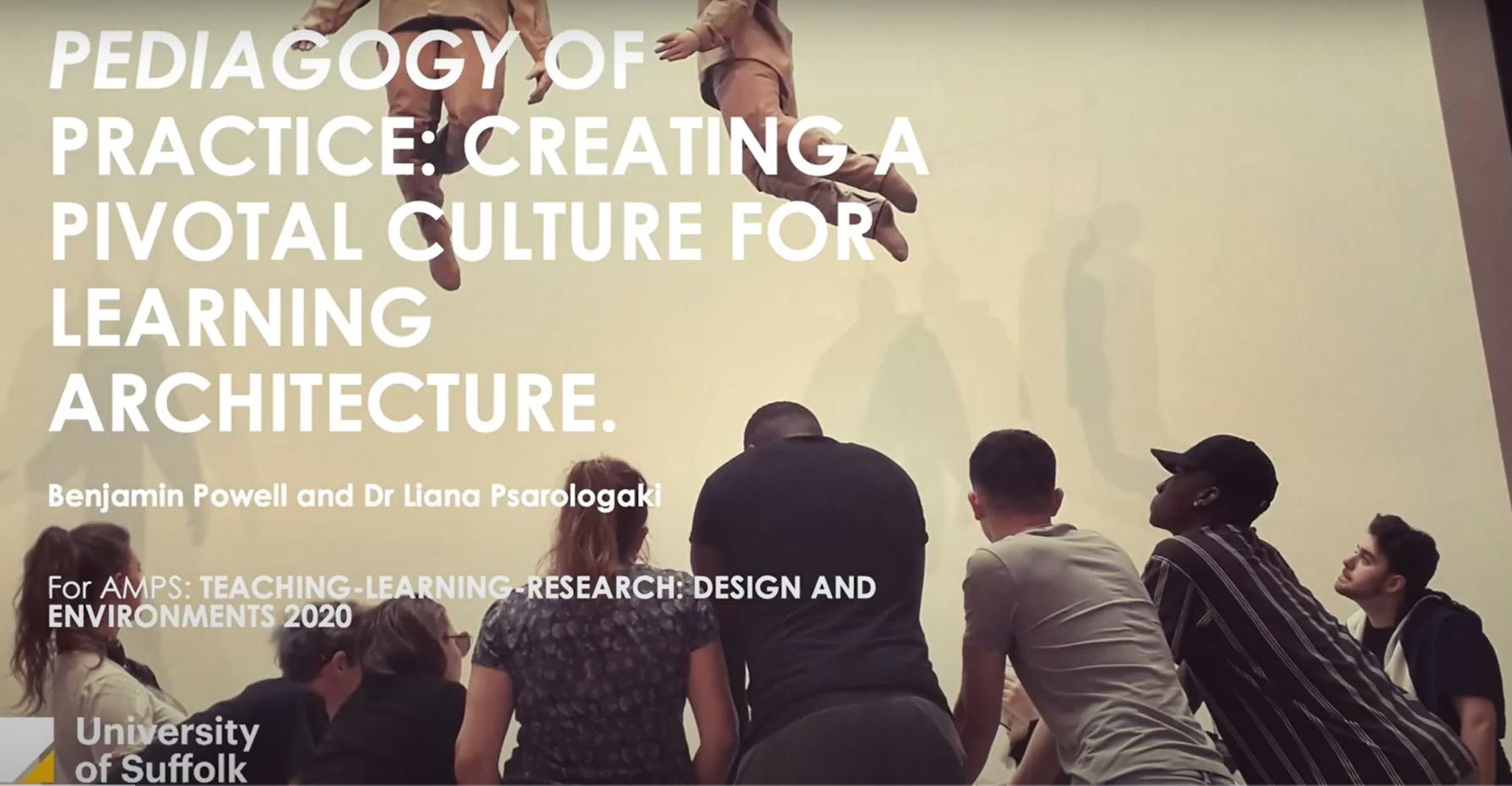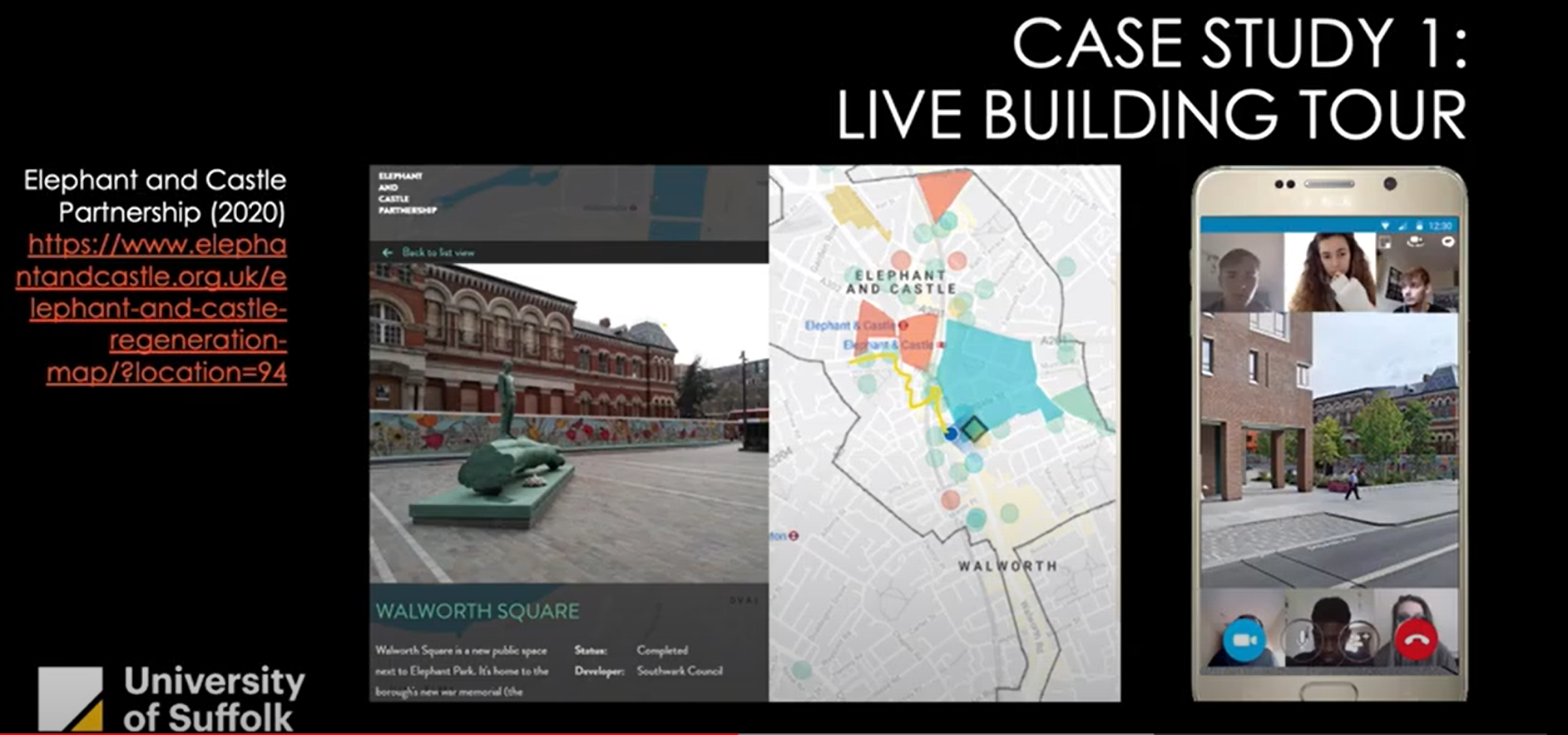AMPS 2020 Pedagogy of Practice: A Pivotal Culture for Learning Architecture


We were delighted to participate in this years Architecture_Media_Politics_Society (AMPS) Conference addressing the subject of ‘Teaching-Learning: Research, Design and Environments’. Director Ben Powell collaborated with Liana Psarologaki, Head of Architecture at the University of Suffolk to discuss what learning environments could look like in a virtual future. Questions of how to create innate desire, interest and concrete learning were also covered within the talk. A short excerpt from the presentation is below:
Liana: We piloted two new modes of learning for students on the BA Hons Course at Suffolk which we bring as a point of reflection. These exercises created platforms for us to investigate the role of the utopian educator in the future virtual studios of desire.
Ben: The first learning activity includes a live digital experience with the participants taken on virtual tours in the field by a guide, the teacher, using their mobile device to record themselves moving around in space. The experience is shared using live tracking, participants follow the guide's location and to compliment the guide's commentary, there are online materials shared in advance. Like in a game, there is a level of play as the students direct the guide's attention to particular objects they are interested in – therefore actively shaping their learning.
The newly developed Elephant and Castle Development was the first point of exploration, it was interesting to us as it was a relatively new development, there was also some elements of controversy that could form a basis for discussion and a wealth of online materials and resources were available to provide context. An interactive map with links, photos and background information was also a useful tool to support this learning experience.
The field learning environment provided a tangible moment to experience relevant topics covered in the module, including planning and detail design. The exercise was a situational learning exercise, therefore, Specific learning objectives were omitted in favour of allowing students to formulate their own activities according to their desires and their discussions with their peers.
Several questions were raised during and after the event, suggesting a high level of interest, and therefore overall success of the activity. The field study became a point of reference for students during future discussions about their work and the wider objectives of the module.
Watch their presentation and learn more about Case Study Two: ‘Architecture Hackathon’ by clicking the link below.
